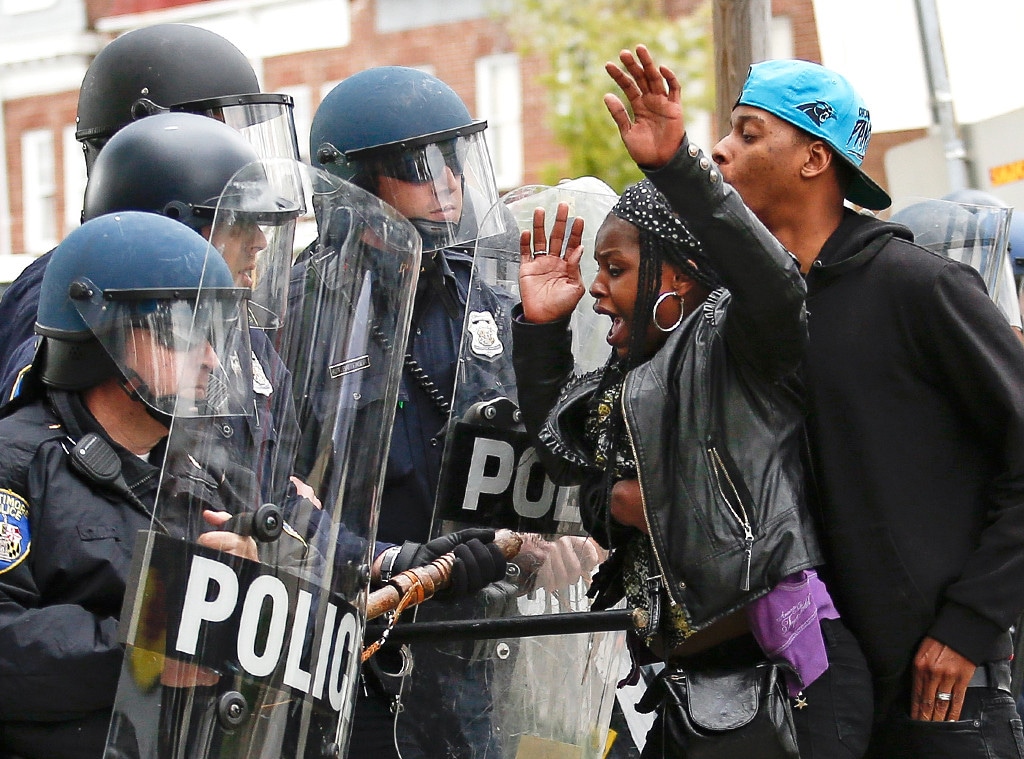 Drew Angerer/Getty Images
Drew Angerer/Getty ImagesAs the situation in Baltimore continues to deteriorate, politicians, public figures and even athletes are speaking out about the violence and unrest plaguing the city. There are a lot of voices in the mix, but one that just made a significant impact on us is that of David Simon, creator and head writer of The Wire.
As a police reporter for The Baltimore Sun he spent over a dozen years chronicling the drug war (and its repercussions) in inner-city Baltimore. He spoke to The Marshall Project, a non-profit news organization that covers crime stories, about the recent death of Freddie Gray and explained what he believes everybody needs to know about what's causing the riots.
For starters, Simon says that the civil unrest in Baltimore stems from decades and decades of institutional issues and that even he has yet to fully grasp all of it. But he believes that the most important issue for outsiders to know is that the drug war transformed the city's relationship to the police department.
"Probable cause was destroyed by the drug war," he explained. "It happened in stages, but even in the time that I was a police reporter, which would have been the early '80s to the early '90s, the need for police officers to address the basic rights of the people they were policing in Baltimore was minimized...it not only made everybody in these poor communities vulnerable to the most arbitrary behavior on the part of the police officers, it taught police officers how not to distinguish in ways that they once did."
In layman's terms, that means that in an effort to reduce crime in the city, police officers began taking drastic measures to clear the streets in poor neighborhoods and began bringing people into the police station by the thousands, according to Simon. He describes police officers joking about something as simple as someone on the street corner looking at a cop for too long becoming probable cause for an arrest—and it only got worse from there.
"Then at some point when cocaine hit and the city lost control of a lot of corners and the violence was ratcheted up, there was a real panic on the part of the government," said Simon. "And they basically decided that even that loose idea of what the Fourth Amendment was supposed to mean on a street level, even that was too much. Now all bets were off."
David recalls horrors like his own TV crew members being arrested for what he calls "driving while black" on their way home from a night shoot, or officers "cooking the books" to make crime rates appear drastically lower than reality (he says he became privy to such information after he ended his newspaper career to write The Wire—officers began confiding in him out of frustration).
So how does all of this sad history affect Freddie Gray's death? Simon believes a major factor is the fact that this decades-long knowledge of police violence is now documented and out in the open. "It used to be our word against theirs [the police]," he explains. "Absent a herd of reliable witnesses, there were things he [a police officer] could do to deny you your freedom or kick your ass that were between him, you, and the street. The smartphone with its small, digital camera, is a revolution in civil liberties."
"I know there are still a good many Baltimore cops who know their jobs and do their jobs with some real integrity and even precision," cautioned Simon. "But it's clear that there are way too many others for whom no code exists. Anyone and everyone was a potential ass-whipping—even people that were never otherwise charged with any real crimes...that comes from too many officers who came up in a culture that taught them not the hard job of policing, but simply how to roam the city, jack everyone up, and call for the wagon."
While it's certainly worth mentioning that David Simon's evaluation of the situation is just one in many, his disturbing words are extremely thought-provoking. If you're looking to educate yourself further on the issues and struggles happening, the entire (and, to be fair, very long) article is worth a reflective read.